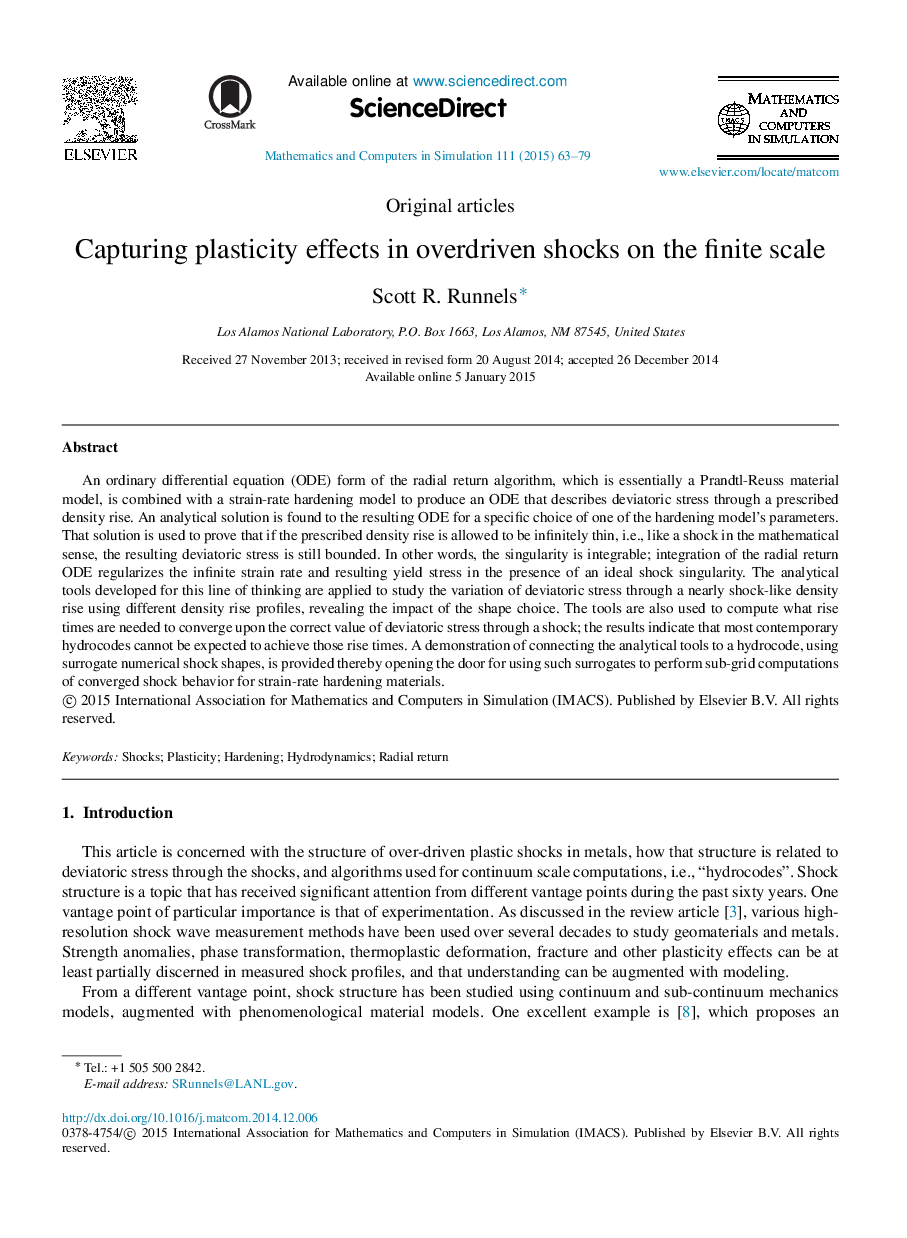| Article ID | Journal | Published Year | Pages | File Type |
|---|---|---|---|---|
| 1139040 | Mathematics and Computers in Simulation | 2015 | 17 Pages |
Abstract
An ordinary differential equation (ODE) form of the radial return algorithm, which is essentially a Prandtl-Reuss material model, is combined with a strain-rate hardening model to produce an ODE that describes deviatoric stress through a prescribed density rise. An analytical solution is found to the resulting ODE for a specific choice of one of the hardening model's parameters. That solution is used to prove that if the prescribed density rise is allowed to be infinitely thin, i.e., like a shock in the mathematical sense, the resulting deviatoric stress is still bounded. In other words, the singularity is integrable; integration of the radial return ODE regularizes the infinite strain rate and resulting yield stress in the presence of an ideal shock singularity. The analytical tools developed for this line of thinking are applied to study the variation of deviatoric stress through a nearly shock-like density rise using different density rise profiles, revealing the impact of the shape choice. The tools are also used to compute what rise times are needed to converge upon the correct value of deviatoric stress through a shock; the results indicate that most contemporary hydrocodes cannot be expected to achieve those rise times. A demonstration of connecting the analytical tools to a hydrocode, using surrogate numerical shock shapes, is provided thereby opening the door for using such surrogates to perform sub-grid computations of converged shock behavior for strain-rate hardening materials.
Related Topics
Physical Sciences and Engineering
Engineering
Control and Systems Engineering
Authors
Scott R. Runnels,
